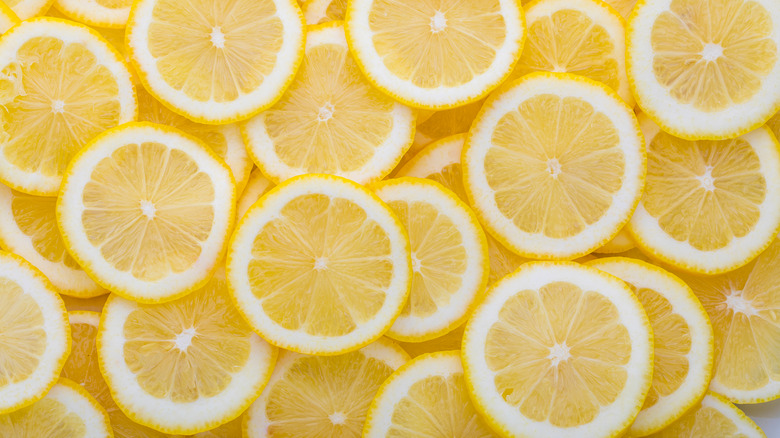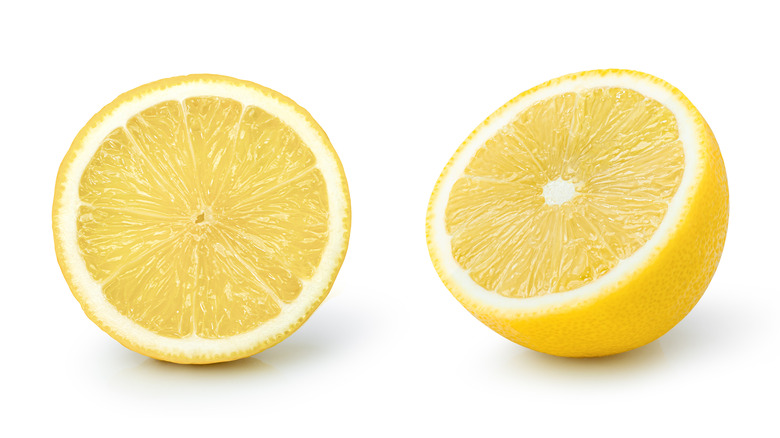Why Some Lemons Have More Juice Than Others
Imagine yourself getting excitedly ready to prepare a cold and juicy lemonade. You are just back from the grocery store with your lemons, thrilled to be juicing them soon. The day is kind of hot and you are even considering adding mint, watermelon, coconut, or some fancy ingredient to your favorite tart fruit juice.
You start with the first step of cutting the lemon, grab a citrus squeezer, and start doing the job (via Rada Cutlery). However, your first impression of your lemonade is disappointing: These lemons, although bright, colorful, and huge, don't have enough juice — you probably need to use a higher number of them for lemonade, or run to the store again to buy some more. But, it is probable that your lemonade cravings will have already disappeared into the air, and most of your lemon batch is now wasted.
Finding out your lemons don't have enough juice is a common problem in a kitchen. There sure are some hacks, like microwaving or rolling them, but this adds extra work and time when you simply need lemon juice fast. In order to avoid this kind of trouble, there are some things to consider when shopping for lemons (per Getty Stewart). Texture, color, weight, and size all come into consideration, which can change depending on how old the lemon is. Yet there are even more factors to look out for when selecting the perfect fruit.
Smaller, brighter, and heavier lemons are often juicier than larger lemons
Cook's Info explains that as lemons get older, they lose some of their juice. How can you tell when a lemon is old? You have to pay close attention to its skin. If the skin looks rough, the lemon doesn't have enough juice in it, as opposed to smooth-skinned lemons, which are juicier and likely younger. It depends on when the lemon was grabbed from a lemon tree, how long it grew there, and how yellow it turned. Shinier and yellower lemons generally have more juice. Also, don't mind the brown scars on the skin, this is a thing that happens in old and young lemons, and in fact, the more organic, the more normal that would be.
You can also guide yourself with the lemon's weight and size, as All About Lemons indicates. Weight is a sign of how much juice a lemon carries, so try to go with the heaviest instead of the lightest lemon. Grab the lemon with your hands instead of just judging them by appearance, as size can be deceiving. In fact, smaller lemons are typically better for juicing. But, this doesn't mean large lemons are not good — they are great for preparing some lemon zest, or for other great kitchen hacks like cleaning ovens and bringing a sour spark to anything prepared during a cookout. Once you understand the art of buying lemons, you'll never be disappointed with the fruit's juice again.

